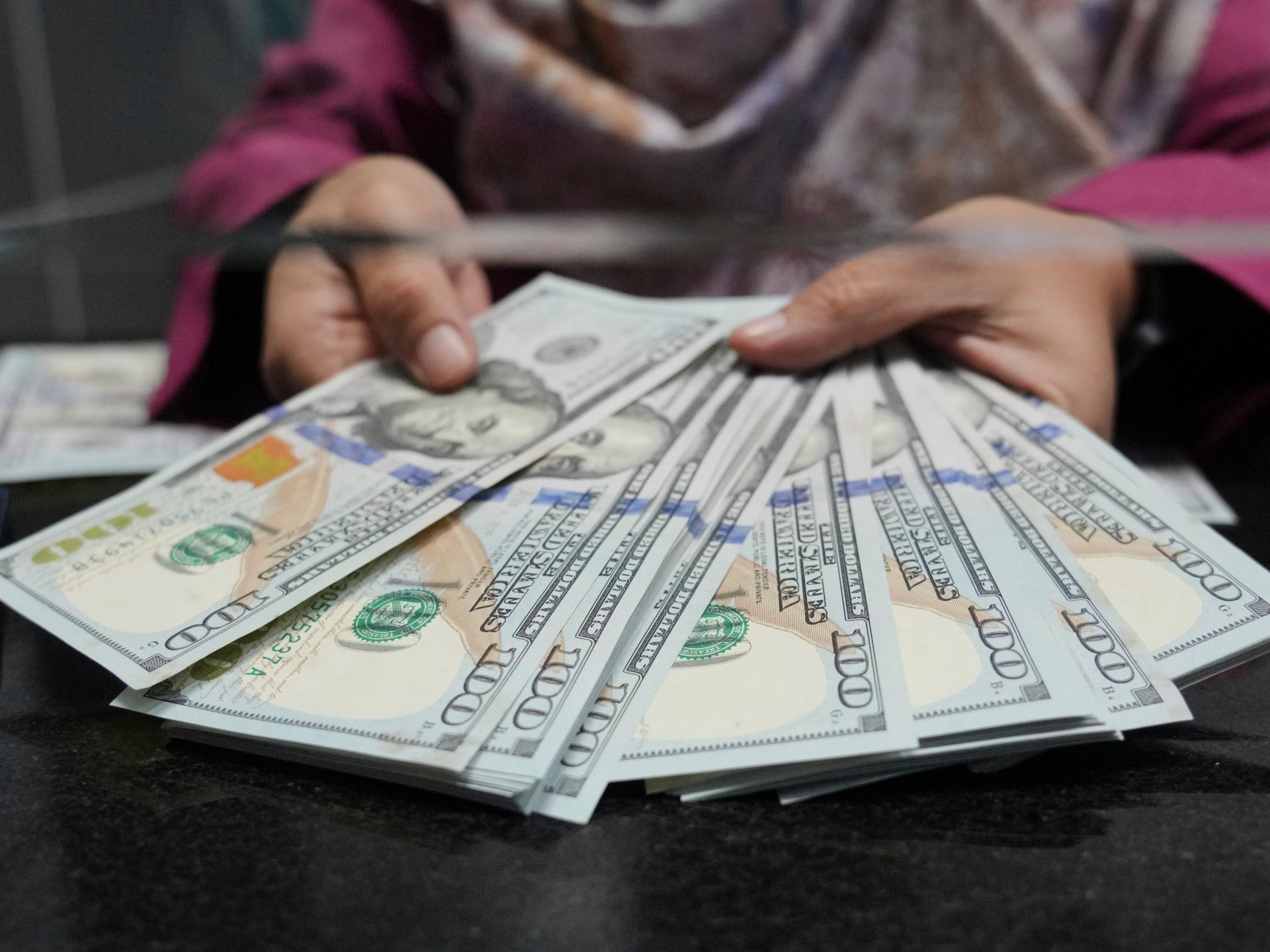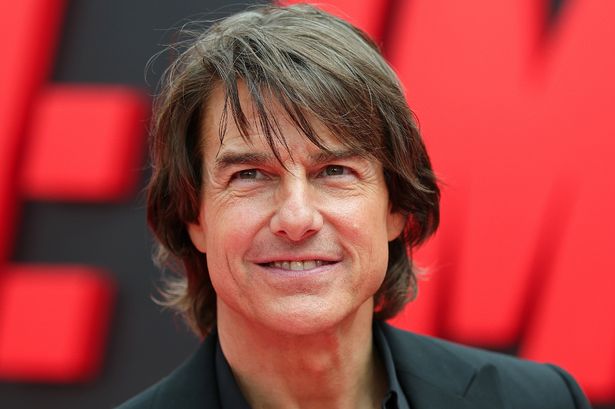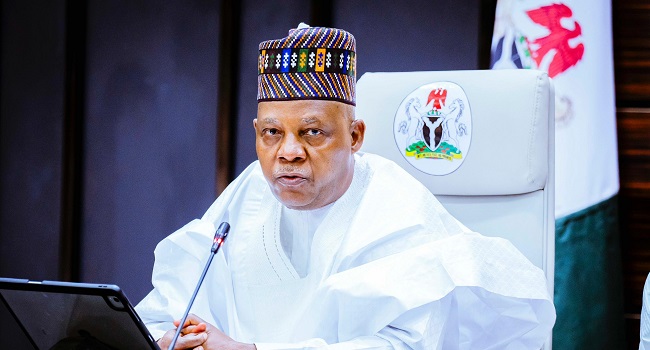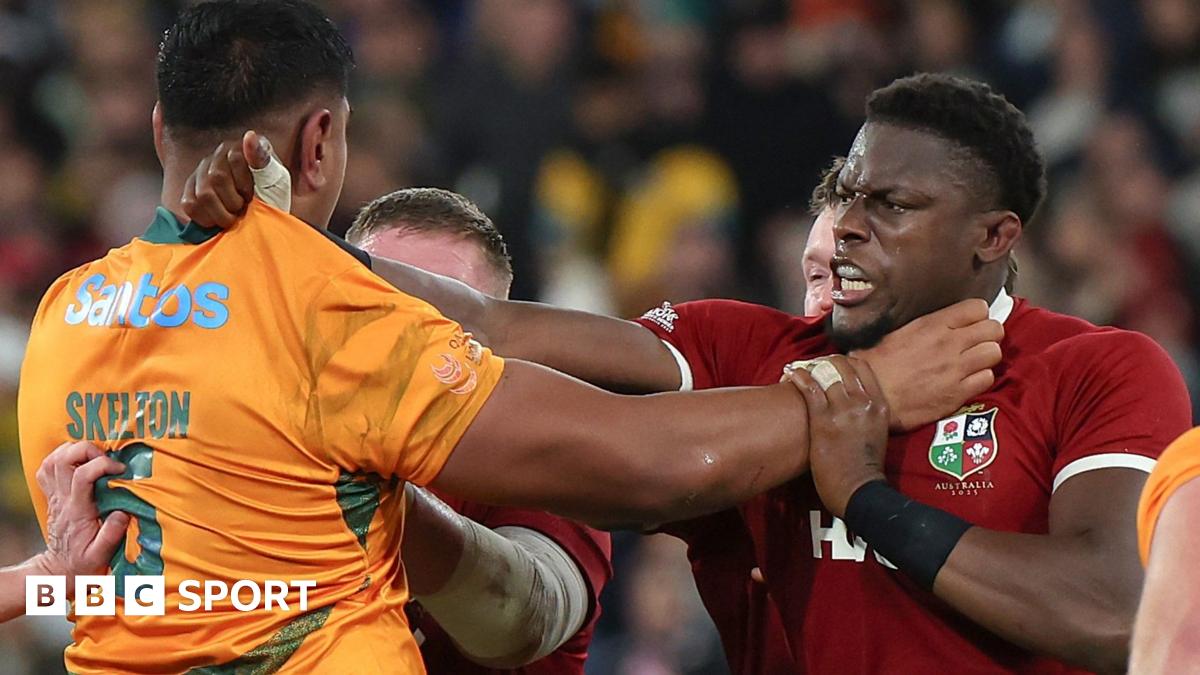The US dollar has remained the world reserve currency since 1940. driving international trade and reinforcing the status of the United States as an economic superpower.
However, some nations have recently voiced opposition to the US dollar’s longstanding economic dominance.
The BRICS economic bloc, named for its founding members, Brazil, Russia, India, China, and South Africa, has actively sought to reduce its reliance on the US dollar. China has even promoted its yuan and entered currency swap agreements with other nations in an effort to “de-dollarize”.
Christine Lagarde, president of the European Central Bank, recently noted that a “shift” was under way that would allow for the “euro to gain global prominence”.
The “dominant role of the US dollar,” which accounts for 58 percent, is no longer certain, according to Lagarde, who stated in June that the euro accounts for roughly 20% of the world’s foreign exchange reserves.
“History teaches us that regimes seem enduring – until they no longer are. There have been previous shifts in global currency dominance. This moment of change is an opportunity for Europe. It’s a “global euro” moment, Lagarde said.
The dollar has also weakened this year, experiencing its sharpest six-month decline in decades.
Under the administration of US President Donald Trump, rising debt, and changing interest rate expectations, global investors have been reacting to policy uncertainty, with some arguing that it is a “safe-haven” for investors.
Experts say that in the unlikely event that the US were to lose its reserve currency status, the impact would be profound, as the country would lose much of its leverage to influence global trade and enforce sanctions – international trade that does not directly involve the US often runs through the dollar.
Or, as Trump once said to reporters earlier this month, “Winning a war would be like losing the world’s standard dollar.”
“We would not be the same country. ”
‘Exorbitant privilege’
The US dollar serves as the basis for a monetary system where central banks rely on it to stabilize their economies, manage debt, and implement trade policies.
Historically seen as a safe investment, the dollar remains so deeply embedded in the global system that, despite recent shake-ups, it is unlikely to be dethroned anytime soon, emboldened by a longstanding history of resilience.
When then-President Franklin D. Roosevelt centralized US gold reserves and bound the dollar to a fixed supply of gold, this was accomplished in the 1930s.
Then, in 1944, the US spearheaded the Bretton Woods Agreement, which pegged international currencies to the dollar, leading to the creation of the International Monetary Fund (IMF) and the World Bank.
The dollar became the face of the post-war financial system as a large portion of the world recovered from war and the US held the majority of global gold reserves. By the 1960s, Valéry Giscard d’Estaing, the former French minister of finance, had described the US as an “exorbitant privilege”.
In 1971, US President Richard Nixon severed the last remaining ties to the gold standard, an action that became known as the “Nixon shock”, allowing the dollar to float freely in the open market. Despite the wave of changes, the US economy continued to grow, helping the dollar stay in its current position thanks to its improvement in manufacturing and information.
Since the Nixon era, the dollar’s dominance has mostly only strengthened, even as countries like China have outpaced the US in economic growth, population and manufacturing output. Through trade agreements and financial sanctions, the US has continued to exert disproportionate influence.
“Many times, even between emerging markets when one converts a currency, like the Brazilian real and the South African rand, for example, there is a transaction to US dollars in between, and so, the US extraterritorial power here stems from the fact that other countries, global banks, don’t want to lose their access to the US dollar-based financial system,” Rachel Ziemba, adjunct senior fellow at the Center for a New American Security, told Al Jazeera.
When the US imposes sanctions, this also adds weight.
“From a geopolitical standpoint, the US having a reserve currency gives it more flexibility to weaponise its currency via financial sanctions and the like,” Ziemba said.
Transactions can be subject to US sanctions because they frequently occur through banks that work in tandem with the US Federal Reserve, even if the US is not directly involved.
That is why the financial sanctions imposed on Russia after its invasion of Ukraine led to a default on Moscow’s sovereign debt. Russia was effectively barred from doing dollar-based trade by former US President Joe Biden’s administration in 2022, halting its economy and halting its $ 300 billion in assets held by its central bank. As a result of the sanctions led by the US, Russia’s gross domestic product (GDP) fell by $104bn.
Domestically, a domestic decline in the dollar would result in higher borrowing costs. Without foreign demand for US debt, interest rates would rise, driving up the cost of mortgages and credit cards. Because of this, private banks align their rates with the Federal Reserve’s.
“It would mean the US no longer has this big pool of foreign savings to rely on to keep the US borrowing costs down. According to Pearce, it poses a kind of fundamental threat to the US economic model of the past few decades, which has historically been characterized by relatively low interest rates, which has made it possible for consumers, businesses, and the government to finance a lot of debt for relatively low costs.
“A loss of dollar dominance for the US means higher interest rates in the US, and that’s really going to put pressure on demand. He continued, “Mortgages will become significantly more expensive.”
A new era of economic uncertainty
The current global economy is more interconnected than it was during Nixon’s time, when US dominance was largely uncontested.
Emerging powers such as China and India have expanded their global influence, and alternative financial systems, including the rise of cryptocurrencies, have gained traction. In a world of increasing threats, repeated policy whims from one US administration to the next could undermine that stability.
Trump’s erratic approach to tariffs and global agreements has revived doubts about the US’s reliability on the world stage and raised long-term concerns about the stability of the dollar.
According to Alex Jacquez, a special assistant to the president for economic development at the White House National Economic Council under Joe Biden, “I think Trump has done more than anyone in modern history to undermine important institutions.”
After Trump’s first term, global partners felt the US had returned to diplomacy under Biden, Jacquez told Al Jazeera.
We had our disagreements and issues with our trading partners when I joined the Biden administration and started these issues, but the international community graciously agreed to help us resolve these issues. But that came with scarring and pain with their interactions with the Trump administration. ”
However, Jacquez noted that regaining that trust may now be harder. Trump’s administration has pushed a wider pattern of reversals in US policy, which is not just due to him.
Jacquez argues that frequent U-turns, abrupt withdrawals from agreements and threats to longstanding alliances have created global instability, making it difficult for other nations to formulate long-term plans, which could compromise the long-term stability of the dollar.
Trump recently signed into law tax legislation, which includes an additional $3. 4 trillion to the federal deficit. This raises concerns about the US economy’s long-term stability, which could lead to higher borrowing costs that could affect central banks, consumers, and international investors.
In 2023, then-Senator JD Vance questioned the value of the dollar as the global reserve currency in an exchange with Federal Reserve Chairman Jerome Powell.
You can argue that the reserve currency status is a significant tax on American producers, according to Vance.
But since Trump took office with Vance as vice president, tariffs have put pressure on US producers, not the status of the dollar.
Trump’s attempts to influence the Federal Reserve, which might have an impact on the dollar’s value, raise other issues. The president has long criticised Powell for not lowering interest rates, and has threatened to fire and replace him.
The White House has begun the formal search for a replacement for Powell, whose term ends in 2026, according to US Secretary of the Treasury Scott Bessent, who was quoted earlier this month. This comes amid reporting from CBS News that last week, the president asked a group of Republican lawmakers if he should fire Powell.
Trump later acknowledged that firing Powell was “highly unlikely,” though.
“Policies of that nature, which would make investing in US treasuries risky, particularly for foreign investors, I think that would make me a bit more concerned about a loss of reserve currency status,” Michael Pearce, deputy chief economist at Oxford Economics, told Al Jazeera.
That kind of US exceptionalism has been removed from the table, at least for this year, thanks to tariffs and other policies. We expect the US to be relatively hard-hit by these tariffs compared to the rest of the world. It’s still a relatively dynamic economy, Pearce continued.
Contenders for the global reserve currency
Some nations are putting themselves on a bigger stage of global finance, but none have yet achieved the same level of influence as the dollar. This means it is unlikely that any currency could replace the dollar as the de facto global reserve currency.
However, attempts are made to repress US influence. BRICS nations have moved to reduce their reliance on the US dollar in recent years, which has become a growing concern for Trump.
The European Central Bank is also promoting the role of the euro as a more important member of the global system, but as Lagarde pointed out in her essay, a “step forward to greater international prominence for our currency will not be by default; it must be earned.”
Despite attempts by other nations to expand their influence over the global reserve, and the recent decline in the dollar’s value, economists argue that it is unlikely the dollar will lose its status as the world’s reserve currency. And if it did, it might take decades before there even seems a minor change.
“It’s definitely premature to worry about the dollar losing the global reserve currency status. Even if it did, it would still take several years, according to Morningstar’s head of fixed income and currency research, Hong Cheng.
Pearce also said that a change in the global reserve hierarchy was unlikely.
It seems unlikely that there will be a significant shift in which the US will obviously lose its position at the top of the list. I find it difficult to see any viable contender emerging to the dollar in that sense,” Pearce said.
Instead, experts predict a more plausible future with a multipolar currency system, in which case the dollar and other major currencies, including the renminbi, function together.
“We could be heading into some kind of multipolar reserve currency environment where there is an additional role for currencies like China’s renminbi. No clear alternative currency exists, according to Ziemba, a Senior Associate at the Center for a New American Security.
Even if a transition were to occur, it would take decades.
According to Jacquez, you would need a managed unwinding, which would require coordination or some other system creation, which would also take time.
While the dollar’s share in global reserves has declined, it is not at an unprecedented low.
According to JPMorgan Chase, the dollar share of FX [foreign exchange] reserves was lower in the early 1990s, so the recent decline in its share is not entirely out of the norm.
In emerging markets, “the same ratio of USD reserves as in 1995” still holds. Analysts don’t anticipate a significant impact despite recent sell-offs, including one involving China in April.
Countries often hold US Treasuries as liquid assets, which provides stability to their own currencies, so unravelling the US dollar’s status could also undermine their own interests.
International investors are more likely to choose to reinvest some of the proceeds where they are because more than 30% of foreign Treasury holdings will mature in the next two years. We think large-scale selling is unlikely,” the note added.
That indicates that the US dollar will likely continue to be the dominant force in the near future.
“I don’t think there’s one dominant currency that’s gonna replace the dollar. And I believe it will take many years for a change to occur, if there were a change, in theory.” Cheng added.









